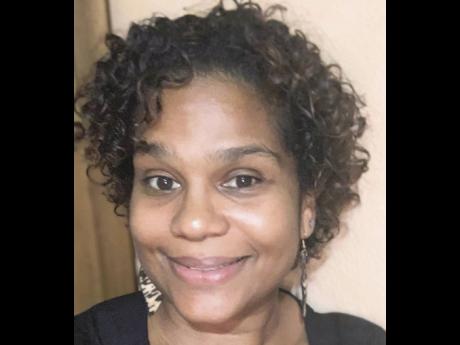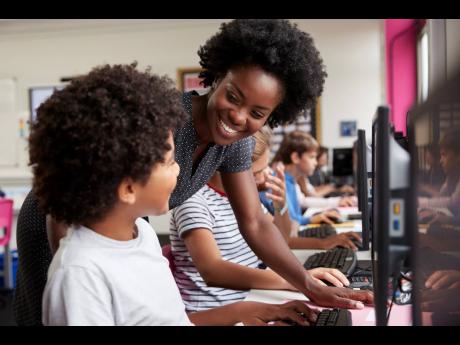Renée Latchman | COVID-19: Perspectives of an educator and a parent
I feel very passionately about how COVID-19 has unexpectedly settled in our nation, specifically, its impact on the Jamaican education system. As an educator and a parent, I am privy to dual modes in which the virus has contorted the educational paradigm.
COVID-19 has thrust my colleagues and me into a new realm that only a few of us had begun preparing for. But, the majority of us were not primed or had even entertained the idea of online teaching and learning. Fortunately, the technology already existed to facilitate virtual education; however, as many educators have already discovered, online teaching requires more than we anticipated. Lessons and content delivery must be reconceptualised to maintain the interest of our students without compromising the quality of the instruction. This leads to countless hours in front of a computer screen searching for available applications to advance our teaching objectives. Consequently, many of us need glasses or a new prescription. We suffer from dry eyes, vision fatigue, headaches, and a host of other ailments, some of which we never even knew existed. Poor posture and sitting all day have resulted in all kinds of back, neck, and wrist aches that make teaching uncomfortable.
As a parent, online learning has added a new element of challenge to the already daunting task of parenting Generation Z. Finding the balance between work and the kids at home has been tough. With a full-time job, a 16-year-old and a one-year-old, I have had to “tun up” my time-management skills just so I don’t lose my mind. And still, I struggle. Not to mention the voracious appetites of our children who are constantly hungry now that they are home more and with their friends less. If you work from home like me, you are often interrupted by your child for food, boredom, did I say food, and you also become a sounding board for your child’s frustration with his or her teacher, classwork, or classmate. All interactions occurring while you are teaching your class or carrying out your daily tasks for your job.
NEW HANDBOOK
Parents of children with special needs, single moms and dads, parents who take their children to work, parents who can’t take their children to work – the array of family dynamics that exist in our society all demand a new handbook (not that one existed before) on how to support our children in succeeding at virtual education. COVID-19 did not announce its arrival so that we could prepare for its onset. Thus, many parents are building the ship and sailing it all at once.
And yet although parents and educators have been facing multifarious ordeals, our students have also been unexpectedly burdened.
Our children – our future – have been hurled into a virtual space for which they were not equipped. For them, the act of learning must be reimagined. They need to find a way to adapt fast and succeed at it because exams continue, and grades must be earned. Among the range of obstacles students face, the most popular manifest as lack of devices or devices that work, to the absence of an internet connection or lack of a conducive learning environment. Still, other impediments arise from children with special needs, gifted, dyslexic, autistic, and more. Their needs vary depending on their learning type. Let’s not forget the challenge of having a teacher who is not technologically savvy (this is no fault of their own), and/or who did not have the opportunity to receive appropriate training to facilitate his or her students.
As learners, our children are on the receiving end of an educational paradigm that is still being shaped by several potters. This is not meant to ignore the various pathways and avenues created by the Ministry of Education, its affiliates and other educators who have been working tirelessly to help students navigate this unanticipated valley. The fact is that our students are expected to adapt to an unprecedented situation almost instantaneously. And they need our support.
Like their teachers, our children now suffer from all kinds of ailments due to extended periods in front of the computer. What’s worse, after spending an entire day attending class, they must still spend a few more hours doing homework online, all without any prior instruction to pilot them into this latest form of education. And while some students have been excelling at online learning, many others are not.
SUPERHEROES
Our students, though, for me, are superheroes. And while we acknowledge the great losses we have all experienced from COVID-19, let us not ignore the gains, lest we lose sight of the gifts that are borne in the present.
This new arrangement afforded us by COVID-19 has its advantages. Many families have more family time. Virtual learning has built character in many of us, and it pushes us to develop some new intellectual muscles. If you never understood fractions before or how to use a comma, dissect a frog virtually or that Christopher Columbus did not discover Jamaica, COVID-19 has given us parents a second chance to get it right while helping our children do the same. COVID-19 has challenged us to rise above our obstacles, together. It has created opportunities for us to become more creative with our parenting, teaching, and fulfilling our civic duties. Indeed, as the word of God affirms, we can find joy “in our sufferings, because we know that suffering produces perseverance; perseverance, character; and character, hope.” Romans 5: 3-4. (NIV).
Therefore, looking back in an attempt to look forward with 20/20 vision, let us be patient with ourselves and each other. Let us support each other as educators, parents, and children on this new path to reformed education. Let us turn our minds to a new frontier. Let us embrace a new manner of thinking about education instead of waiting for things to go back to normal.
Let us always be ready for and open to change so that we can always be ready to move forward.
- Renée Latchman, PhD is the founder of The NextLevel Mentoring Group. She has taught at Howard University and Morgan State University in the USA and began teaching in Jamaica recently. Send feedback to rlsoyibo@gmail.com.


